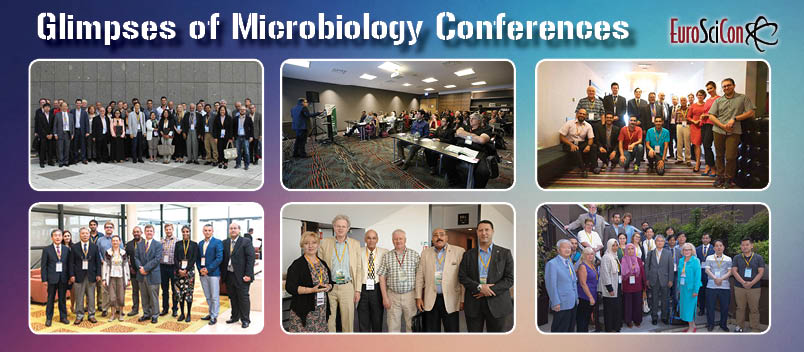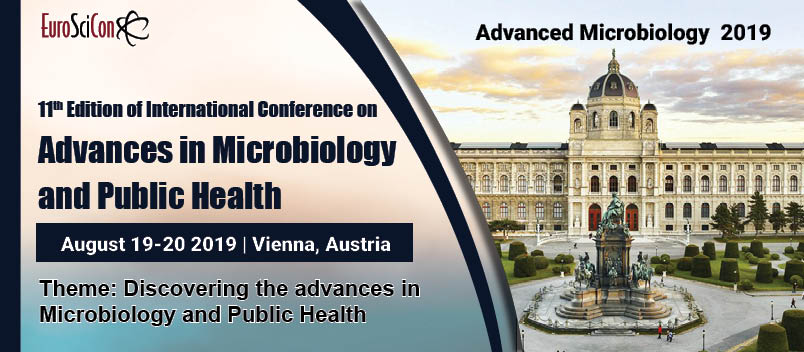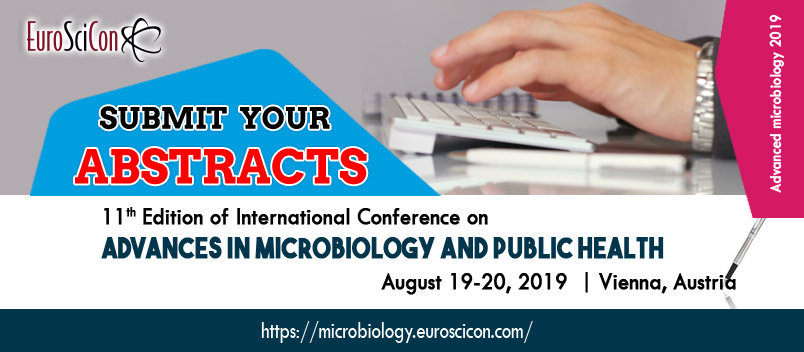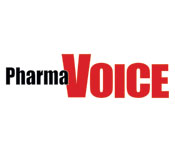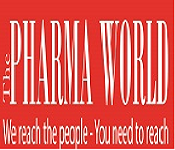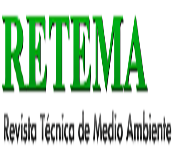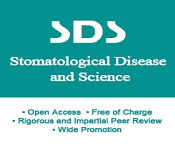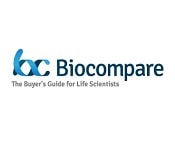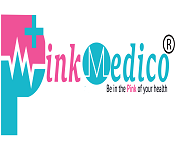MICROBIOLOGY 2021
About Conference
Why to attend our conference
- Eminent Scientists
- Directors / Head of Microbiology
- Principal Investigators, Research lab Scientists, Research Scholars
- Professors & Associate Professors of Microbiology, Health Care, Immunology, Bacteriology, Virology
- Directors/ Scientists of Microbiology
- Experts in Microbiology, Heath care, Immunology, Virology
- Theoretical Scientists working on deriving analytical hypotheses
- Research lab scientists, scholars, Young Scientists
- Relevant Post-graduates, Graduates, Technicians, Students.
- For Researchers &Faculty:
- Speaker Presentations
- Poster Display
- Symposium hosting
- Workshop organizing
- Association Partnering
- Collaboration proposals
- Academic Partnering
- Group Participation
- For Students & Research Scholars:
- Poster Competition (Winner will get Best Poster Award)
- Young Researcher Forum (YRF Award to the best presenter)
- Student Attendee
- Group registrations
- Speaker Presentations
- Symposium hosting
- Book Launch event
- Networking opportunities
- Audience participation
- Exhibitor and Vendor booths
- Sponsorships opportunities
- Product launch
- Workshop organizing
- Scientific Partnering
- Marketing and Networking with clients
Sessions/ Tracks
Track1: Advanced Research in Microbiology and Public Health
Advanced Research in Microbiology and Public Health track deals with the inter disciplinary researches & developments in microbiology and public health. Generally, Microbes play an important role in balancing the health in the society. This session covers the wide area of advanced researches under Microbiology, Epidemiology, Public Health, Clinical Microbiology, Diagnostic Microbiology, Environmental Microbiology, Astro Microbiology, Agriculture Microbiology, Food Microbiology, Molecular Microbiology, Industrial Microbiology, Microbiome, Infectious Diseases and their preventive Measures, Medical Microbiology and many more related fields.
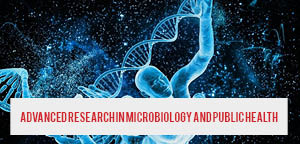
Track 2: Advances in Applied Microbiology
Applied Microbiology is the field of study where the microorganisms where used in the production of certain products like Antibiotics, enzymes, Food Products etc., for the benefit for the society. Applied microbiology is the study of the microbial world and the way it interacts with our own. It looks at how we can harness and utilize the powers of the microbes in areas ranging from biotechnology to pest control, to bio-refineries, to pharmaceutical applications. A wide range of microbial bioproducts is possible. This Applied Microbiology session deals with researches in relation with agriculture and soils, animals and animal health, biodefence, biotransformation, biodegradation and bioremediation, biotechnology, environment, food and beverages, medicine and public health, mycology, pharmacy, plants and plant health, probiotics and the intestine and water of all types, Food Microbiology, Molecular Microbiology, Industrial Microbiology, Enzymes, Antibiotics, Vaccines, Protein Production, Recombinant DNA Technology.
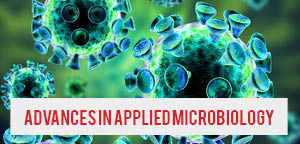
Track 3: Advances in Microbiology
Advances in Microbiology session deals with the latest researches and developments in microbial techniques, Microbial strain improvement, Microbial Engineering, Industrial Microbiology, Medical Microbiology, General Microbiology, Medical Entomology, Anatomy, Physiology, Biochemistry, Pathology, Forensic Medicine and Toxicology, Pharmacology, Community Medicine, Clinical Sciences (Medicine, Surgery, ENT, Orthopedics, Ophthalmology, Radiology,) Medical Biotechnology and Biological Sciences. Microbiology is the study of microorganisms and those being unicellular (single cell), multicellular (cell colony), or acellular (lacking cells) such as bacteria, viruses, archaea, fungi and protozoa. Microbiology encompasses numerous sub-disciplines including virology, parasitology, mycology, bacteriology. biochemistry, physiology, cell biology, ecology, evolution and clinical aspects of microorganisms, including the host response to these agents. The study of microorganisms impinges on all of biology, including geoscience. For many years, research using prokaryotes from both the Bacteria and Archaea domains as model systems has added to the understanding of physiological processes such as growth and metabolism. Thus, through understanding the physiology of prokaryotes, advances in ecology, evolution, and biotechnology have been made.
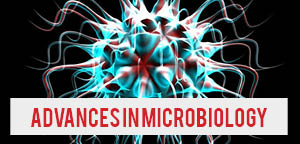
Track 4: Applications of Microbes
Microorganisms plays an important role in our day today life, with those little creatures. The use of microorganism in large scale production of food and industrial products is being done worldwide. Polysaccharides, polyamides, polyesters and many other varieties of biopolymers are produced by many microorganisms. These are ranging from plastics to viscous solutions. Microorganisms are used in large scale manufacturing of vaccines against diseases like influenza flu, polio, BCG etc. with the evolution of sophisticated technology, identification of specific antigens is being done easily which further helps in development of vaccines with the help of microorganisms. They have used in food products, industries, pharma, Nanotechnology, Biotechnology, Food Technology, Agriculture, Drug Delivery, Medical technology, Microbial Engineering, Enzyme Production, Antibiotics Production, Vaccine Production and many more
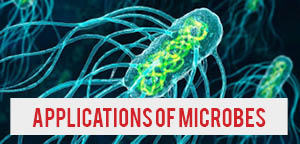
Track 5: Bioremediation and Biodegradation
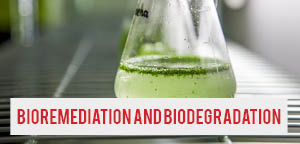
Track 6: Biotechnology
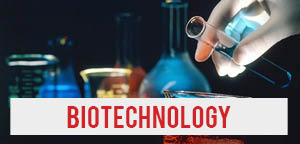
Track 7: Environmental Microbiology
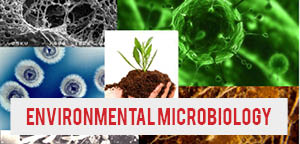
Track 8: Enzyme Technology Advantages and Applications

Track 9:Genetic Engineering in Microbiology
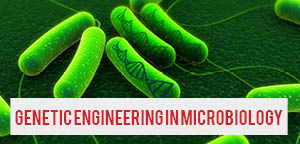
Track 10: Industrial Microbiology
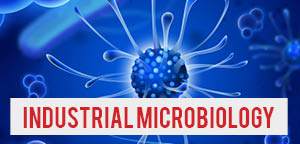
Track 11: Infectious Diseases
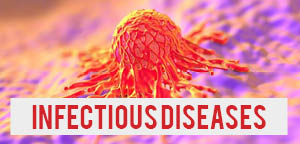
Track 12: Medical Microbiology
Medical microbiology, the large subset of microbiology that is applied to medicine, is a branch of medical science concerned with the prevention, diagnosis and treatment of infectious diseases. In addition, this field of science studies various clinical applications of microbes for the improvement of health. There are four kinds of microorganisms that cause infectious disease: bacteria, fungi, parasites and viruses, and one type of infectious protein called prion. Diagnosis of infectious disease is nearly always initiated by consulting the patient's medical history and conducting a physical examination. More detailed identification techniques involve microbial culture, microscopy, biochemical tests and genotyping. Other less common techniques (such as X-rays, CAT scans, PET scans or NMR) are used to produce images of internal abnormalities resulting from the growth of an infectious agent.
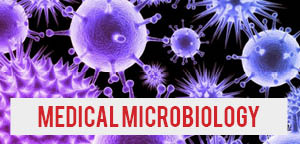
Track 13: Microbial Biofilms

Track 14: Microbial Biotechnology
Microbial biotechnology is defined as any technological application that uses microbiological systems, microbial organisms, or derivatives thereof, to make or modify products or processes for specific use. Microbes (or microorganisms) are organisms that are too small to be seen by the unaided eye. They include bacteria, fungi, protozoa, microalgae, and viruses. Microbes live in familiar settings such as soil, water, food, and animal intestines, as well as in more extreme settings such as rocks, glaciers, hot springs, and deep-sea vents. Microbial biotechnology, enabled by genome studies, will lead to breakthroughs such as improved vaccines and better disease-diagnostic tools, improved microbial agents for biological control of plant and animal pests, modifications of plant and animal pathogens for reduced virulence, development of new industrial catalysts and fermentation organisms, and development of new microbial agents for bioremediation of soil and water contaminated by agricultural runoff. The wide variety of microbial habitats reflects an enormous diversity of biochemical and metabolic traits that have arisen by genetic variation and natural selection in microbial populations. For thousands of years, microorganisms have been used to supply products such as bread, beer and wine. Microbial genomics and microbial biotechnology research is critical for advances in food safety, food security, biotechnology, value-added products, human nutrition and functional foods, plant and animal protection, and furthering fundamental research in the agricultural sciences.

Track 14: Infection & Immunity
Infection is the invasion of an organism's body tissues by disease-causing agents, their multiplication, and the reaction of host tissues to the infectious agents and the toxins they produce. Infectious disease, also known as transmissible disease or communicable disease, is illness resulting from an infection. Infections are caused by infectious agents including viruses, viroids, prions, bacteria, nematodes such as parasitic roundworms and pinworms, arthropods such as ticks, mites, fleas, and lice, fungi such as ringworm, and other macroparasites such as tapeworms and other helminths.Specific medications used to treat infections include antibiotics, antivirals, antifungals, antiprotozoals, and antihelminthics. Pathogenic microbes challenge the immune system in many ways. Immunity is the capability of multicellular organisms to resist harmful microorganisms from entering it. Immunity involves both specific and nonspecific components. The nonspecific components act as barriers or eliminators of a wide range of pathogens irrespective of their antigenic make-up. Other components of the immune system adapt themselves to each new disease encountered and can generate pathogen-specific immunity. In response to infection, your immune system springs into action. White blood cells, antibodies, and other mechanisms go to work to rid your body of the foreign invader. Indeed, many of the symptoms that make a person suffer during an infection—fever, malaise, headache, rash—result from the activities of the immune system trying to eliminate the infection from the body. This session covers the border area of Infection & Immunity and their outcomes.
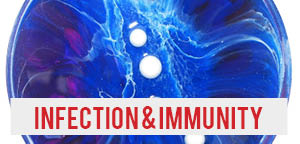
Track 16: Public health & Epidemiology
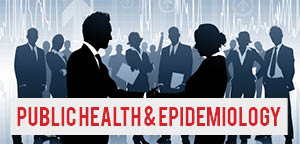
Track 17: Recombinant DNA Technology
Recombinant DNA Technology, joining together of DNA molecules from two different species that are inserted into a host organism to produce new genetic combinations that are of value to science, medicine, agriculture, and industry. Recombinant DNA (rDNA) molecules are DNA molecules formed by laboratory methods of genetic recombination (such as molecular cloning) to bring together genetic material from multiple sources, creating sequences that would not otherwise be found in the genome. Recombinant DNA technology is used extensively in research laboratories worldwide to explore myriad questions about gene structure, function, expression pattern, regulation, and much more. Molecular cloning is the laboratory process used to create recombinant DNA. It is one of two most widely used methods, along with polymerase chain reaction (PCR), used to direct the replication of any specific DNA sequence chosen by the experimentalist. Recombinant DNA techniques are also a cornerstone of the biotechnology industry. This session covers all the aspects in Recombinant DNA Technology
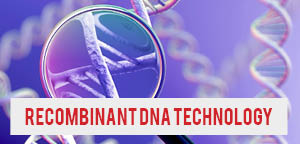
Track 18: Role of Microbes in Public Health
Microorganisms plays an important role in our day to day life, it has become our part and parcel of our life. Microbiome is an essential component of immunity and a functional entity that influences metabolism and modulates drug interactions. It has been known since long time that microorganisms in the human body play an important role in maintaining human health. Certain microbes can help us in the fight against other microbes. Microbes are a source of antibiotics and vaccines. They are found in human and veterinary medicine, that are used to treat and prevent infectious diseases. The microbes that normally live in association with humans on the various surfaces of the body (called the normal flora), such as Lactobacillus and Bifidobacterium, are known to protect their hosts from infections and otherwise promote nutrition and health. They have both positive and negative effects of health in the animal kingdom. This track covers all the advantages and disadvantages of Microbes
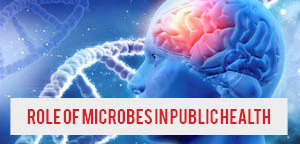
Track 19: Theoretical and Practical aspects of Microbiology
Theoretical and Practical aspects of Microbiology session cover the research topics like basic microbiology, experimental microbiology and case studies. It also includes mathematical modelling of organisms, Genomic Studies, Recombinant DNA Technology studies, Microbial Strain improvement, identification, isolation, improvement, Genome sequencing of new Microorganisms, Drug analysis in microorganisms, discovering the proteins and enzymes of microorganisms and many more studies. Practical approach is nothing but the implementation of theoretical hypothesis to obtain its expects
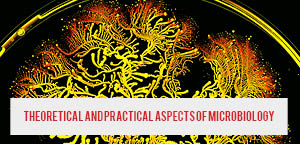
Track 20: Microbiology & Molecular Biology
Microbiology & Molecular Biology is session for their microbial and molecular studies. Microbiology is the study of microorganisms and their activities (whether unicellular, multicellular or acellular). Molecular Biology deals with the basis (structure and function) of all biological interactions between biomolecules (nucleic acids and proteins) in various cell systems. It also includes topics like gene expression and regulation, pathogenicity and virulence, physiology and metabolism, synthesis of macromolecules (proteins, nucleic acids, lipids, polysaccharides, etc), cell biology and subcellular organization, membrane biogenesis and function, traffic and transport, cell-cell communication and signaling pathways, evolution and gene transfer of microorganisms
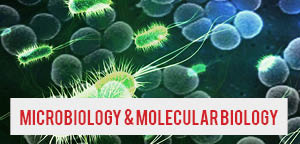
Track 21: Vaccines & Antibiotics Production
A vaccine is a biological preparation that provides active acquired immunity to a particular disease. A vaccine typically contains an agent that resembles a disease-causing microorganism and is often made from weakened or killed forms of the microbe, its toxins, or one of its surface proteins. The agent stimulates the body's immune system to recognize the agent as a threat, destroy it, and to further recognize and destroy any of the microorganisms associated with that agent that it may encounter in the future. Vaccines can be prophylactic or therapeutic. Vaccines can be produced in four stages Antigen generation, cultivating or isolating the Antigens, Antigen purification, Adjuvant additions & Vaccine formulation.
An antibiotic is a type of antimicrobial drug used in the treatment and prevention of bacterial infections. They may either kill or inhibit the growth of bacteria. A limited number of antibiotics also possess antiprotozoal activity. Antibiotics are not effective against viruses such as the common cold or influenza; drugs which inhibit viruses are termed antiviral drugs or antivirals rather than antibiotics. Antiviral drugs are a class of medication used specifically for treating viral infections rather than bacterial ones. Most antivirals are used for specific viral infections, while a broad-spectrum antiviral is effective against a wide range of viruses. Antibiotics are not the same as vaccines. Some antibiotics act by killing the bacteria while others prevent the bacteria from multiplying, leaving your own immune system to 'mop them up'. Vaccines are used to prevent infection, particularly viral infections. Antibiotics can be produced in four stages like Microbial Culture preparation, Fermentation, Isolation & Purification of antibiotics, Antibiotics refining, Quality Control of Antibiotics. This session covers the researches in Vaccines and Antibiotics
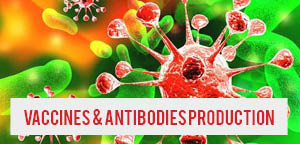
Track 26: Microbial Chemistry
Microbial Chemistry is the study of metabolism inside the microorganisms for its survival and products. Microorganisms has 4 growth stages such as lag phase, Growth phase, Stationary Phase and Death Phase. During the Growth phase microorganisms produce metabolites for its growth and reproduction but in stationary phase they produce metabolites for its survival and other secondary products like enzymes, proteins, peptides which has many benefits, i.e. In Industries these microorganisms are cultivated in larger quantity to get these secondary metabolites or by-products. So Microbial chemistry is the study to know depth of the microorganisms, Microbial Kinetics and their biochemistry. Microbes metabolize the substrate to obtain energy and nutrients, this study also includes their Microbial Proliferation and nurturing of a cellular steady state by up taking and usage of inorganic and organic compounds
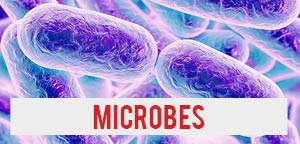
Track 28: Clinical Microbiology
Clinical Microbiology is a branch of medical science concerned with the prevention, diagnosis and treatment of infectious diseases. Moreover, this field of science is concerned about various clinical applications of microbes for the improvement of health. There are four kinds of microorganisms that cause infectious disease: bacteria, fungi, parasites and viruses. In this session we can discuss in border view of microbiological aspects of human and animal infections and infestations and in particular their etiological agents, diagnosis, and epidemiology.
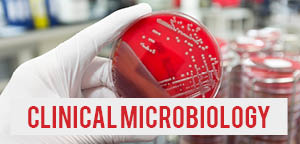
Learn More
Top Microbiology Universities worldwide:
Harvard University | University in New York City | The University of Texas | Molecular Genetics Conferences | University of California | University School of Medicine | University of the Pacific | Vaccines Conferences | The University of Washington | Immuno Biology Conferences | Infectious Diseases Conferences | Emory University | Bacteriology Conferences | The University of Southern California | Clinical Microbiology Conference | The Boston University | Pathogenesis Conferences | Case Western Reserve University | University in Vienna | Autoimmune diseases Conferences | Health Sciences University | Industrial Microbiology Conferences | Columbia University | Virology Conferences | University in Los Angeles | The University of Alabama | Retroviral Diseases Conferences | Saint Louis University | The University of Colorado | The Ohio State University | Immuno Biology Conferences | Nova South-eastern University | Fungal Physiology Conferences | The University of North Carolina | Pathology Conferences | Bacteriology Conferences | Cornell University | Vaccines Conferences | Stanford University | University of Iowa | Texas Tech University System | University in Sacramento | Microbiology Conferences | The University of Nebraska | The University of Florida | University of Minnesota | Immuno Biology Conferences | Georgetown University | Pathology Conferences | Brown University | Pathogenesis Conferences | The Rowan University | Clinical Microbiology Conferences | East Carolina University | Retroviral Diseases Conferences | Pennsylvania University | Infectious Diseases Conferences | Harvard University | Virology Conferences | Microbial Genetics Conferences | Autoimmune diseases Conferences | Stanford University | Food Microbiology Conferences | Massachusetts Institute of Technology | Applied Microbiology Conferences | Euroscicon | University of California Berkeley | Euroscicon Conferences | University of Michigan | Autoimmune diseases Conferences | Microbiology Conferences | Fungal Physiology Conferences | Euroscicon Conferences | University of Washington | Mycology Conferences | Columbia University New York | Food Microbiology Conferences | University of California Los Angeles UCLA | University of Pennsylvania | Immuno Biology Conferences | Clinical Microbiology Conferences | Yale University | Retroviral Diseases Conferences | Johns Hopkins University | University of Wisconsin Madison | Vaccines Conferences | Food Microbiology Conferences | University of California San Diego | Pathogenesis Conferences | Applied Microbiology Conferences | University of California Berkeley | Applied Microbiology Conferences | Clinical Microbiology Conferences | Microbiology Conferences | Microbiology Conferences 2019 | Microbiology Conferences USA 2019 | Euroscicon Conferences | California Institute of Technology | Mycology Conferences | Johns Hopkins University | Bacteriology Conferences | Food Microbiology Conferences | University of California San Francisco | Autoimmune diseases Conferences | University of Florida | Fungal Physiology Conferences | Purdue University | University of Maryland | Vaccines Conferences | New York University | Infectious Diseases Conferences | University of Utah | Microbiology Conferences | Euroscicon Conferences | Molecular Genetics Conferences | University of Kansas | Euroscicon Conferences | University of Rochester | Colorado State University | Boston University | Florida State University | Pathology Conferences | Wesleyan University | Miami University | Albany Medical College | The University of Pittsburgh | Euroscicon Conferences
University of Oxford | Pathology Conferences | University of Cambridge | Clinical Microbiology Conferences | University College London | Euroscicon | University of Edinburgh | Imperial College London | University of Manchester | Retroviral Diseases Conferences | Catholic University of Leuven | Mycology Conferences | University of Amsterdam | King's College London | University of Copenhagen | Immuno Biology Conferences | University of Glasgow | Virology Conferences | Infectious Diseases Conferences | University of Leeds | Ghent University | University of Groningen | University of Helsinki | Bristol University | University College London | Applied Microbiology Conferences | University of Bristol | University of Silesia | Wroclaw Medical University | Euroscicon Conferences | Bogomolets National Medical University | University of Zagreb | Microbiology Conferences | University of Cambridge | University of Sussex | University of Edinburgh | Kings College London | University of Sheffield | Vaccines Conferences | Eberhard Karls University, Tubingen | Pathogenesis Conferences | University of Padua | Fungal Physiology Conferences | University of Wurzburg | Euroscicon Conferences | University Paris-Sud | University of Vienna | Molecular Genetics Conferences | University of Bristol | Immuno Biology Conferences | Free University of Brussels | Microbial Genetics Conferences | University of Milan | Bacteriology Conferences | Clinical Microbiology Conferences | University of Amsterdam | University of Nottingham | Infectious Diseases Conferences | University of Hamburg | Retroviral Diseases Conferences | University of Oslo | Euroscicon Conferences | University of Leeds | Industrial Microbiology Conferences | University of Birmingham | Mycology Conferences | University of Southampton | Autoimmune diseases Conferences | University of Bern | University of Cologne | Medical University of Vienna | Food Microbiology Conferences | University of Münster | Molecular Genetics Conferences | University of Lisbon | University College Dublin | Euroscicon | University of Aberdeen | University of Liverpool | Trinity College Dublin | Delft University of Technology | Virology Conferences | Bielefeld University | University of Leipzig | Cardiff University | University of York | University of Regensburg | Vaccines Conferences | Pathogenesis Conferences | University of Warsaw | University of Freiburg | Stockholm University | University of Sheffield | Food Microbiology Conferences | Eberhard Karls University | Euroscicon Conferences | Tübingen University of Amsterdam | Pathology Conferences | University of Padua | Microbiology Conferences | University of Würzburg | Immuno Biology Conferences | Université Paris-Sud | Bacteriology Conferences | University of Vienna| Infectious Diseases Conferences | University of Bristol | University of Milan | Fungal Physiology Conferences | University of Nottingham | Applied Microbiology Conferences | University of Hamburg | Mycology Conferences | University of Lisbon | Food Microbiology Conferences | Free University of Brussels | Clinical Microbiology Conferences | University of Oslo | University of Southampton | Euroscicon Conferences | University of Leeds | University of Birmingham | Vaccines Conferences | University of Bern | Pathology Conference | University of Cologne | Microbiology Conferences
Top Asia - Pasific Universities
Tsinghua University | Peking University | National University of Singapore | Euroscicon Conferences | Euroscicon | University of Melbourne | University of New South Wales | University of Queensland | Australian National University | Virology Conferences | University of Sydney | Kyoto University | Zhejiang University | National Taiwan University | Shanghai Jiao Tong University | University of Hong Kong | Euroscicon Conferences | Fudan University | Microbiology Conferences | Monash University | Clinical Microbiology Conferences | Fungal Physiology Conferences | University of Adelaide | Vaccines Conferences | University of Western Australia | University of New South Wales | Retroviral Diseases Conferences | Chinese University of Hong Kong | University of Science and Technology of China | Microbiology Conferences | National University of Singapore | Pathology Conferences | Peking University | University of Melbourne | Tsinghua University | Microbiology Conferences | Bacteriology Conferences | University of Auckland | Microbiology Conferences | Fudan University | Infectious Diseases Conferences | Molecular Genetics Conferences | University of Technology Sydney | Industrial Microbiology Conferences | Nanyang Technological University | Autoimmune diseases Conferences | Euroscicon Conferences | University of Hong Kong | Fungal Physiology Conferences | Tohoku University | Pathogenesis Conferences | Charles Darwin University | Food Microbiology Conferences | University of Wollongong | Immuno Biology Conferences | Australian National University | Mycology Conferences | University of Queensland | Pohang University of Science and Technology | Food Microbiology Conferences | Seoul National University | Microbiology Conferences | National Chiao Tung University | University of Canterbury | Victoria University | Toyota Technological Institute | Pathology Conferences | Hong Kong Polytechnic University | Zhejiang University | Mycology Conferences | Korea University | University of Otago | National Taiwan University | Nanjing University | Bacteriology Conferences | Osaka University | National Tsing Hua University | Retroviral Diseases Conferences| University of Tasmania | Food Microbiology Conferences | Deakin University | Microbial Genetics Conferences | Nagoya University.
Abu Dhabi University | Fungal Physiology Conferences | Al Ain University of Science & Technology | Molecular Genetics Conferences | Al Hosn University | Khalifa University of Science Technology & Research | Microbiology Conferences | New York University | Mycology Conferences | Abu Dhabi Paris Sorbonne University | Abu Dhabi United Arab Emirates University | Infectious Diseases Conferences | Zayed University | Applied Microbiology Conferences | Mohammed V University | Autoimmune diseases Conferences | United nations University | Microbiology Conferences | Ajman City University College of Ajman | Microbial Genetics Conferences | Gulf Medical University | Pathogenesis Conferences | University College of Mother and Family Science | Al Falah University | Pathology Conferences | American University in Dubai | Molecular Genetics Conferences | Vaccines Conferences | American University In The Emirates | Amity University Dubai | British University in Dubai | Canadian University In Dubai City | University of London | Curtin University | Mycology Conferences | European University College | Hamdan Bin Mohammed Smart University | Applied Microbiology Conferences | Heriot-Watt University | Virology Conferences | Industrial Microbiology Conferences | Islamic Azad University | Euroscicon Conferences | Jumeira University | Clinical Microbiology Conferences | Manipal University | Microbiology Conferences | Michigan State University in Dubai | Middlesex University Dubai | Retroviral Diseases Conferences | Bacteriology Conferences | MODUL University Dubai | Immuno Biology Conferences | Mohammed Bin Rashid University Of Medicine And Health Sciences | Moscow University for Industry and Finance (Synergy) | Murdoch University Dubai | Pathogenesis Conferences | Saint Joseph University | Saint-Petersburg State Economic University | Fungal Physiology Conferences | The University of Manchester Worldwide | Pathology Conferences | University Of Balamand in Dubai | University of Birmingham Dubai | University of Bradford | University of Dubai | University of Exeter | University Of Jazeera | Vaccines Conferences | University of Modern Sciences | Food Microbiology Conferences | University of South Wales Dubai | University of Wollongong in Dubai | Zayed University | University Of Fujairah | American University of Ras Al Khaimah | Bath Spa University Ras Al Khaimah | Mycology Conferences | Bolton University of Ras Al Khaimah | Ras Al Khaimah Medical & Health Sciences University | Microbiology Conferences | American University of Sharjah | Khalifa University Sharjah branch | Immuno Biology Conferences | Skyline University College Sharjah | University of Sharjah | Microbial Genetics Conferences | Bacteriology Conferences | Al Ghurair University | Euroscicon Conferences
Microbiology and Public Health Societies & Associations in USA:
The American Association of Immunologists | The American Society for Clinical Investigation | International union of microbiological societies | Infectious Diseases Society of America | Clinical Microbiology Conferences | National Foundation for Infectious Diseases | Microbiology Conferences | American Board of Preventive Medicine (ABPM) | Infectious Diseases Conferences | American Society of Preventive Oncology | American Public Health Association | Vaccines Conferences | Microbial Genetics Conferences | International Genetic Epidemiology Society | International Society for Environmental Epidemiology (ISEE) | Retroviral Diseases Conferences | International Society for Pharmacoepidemiology | Bacteriology Conferences | Pathogenesis Conferences | Molecular Genetics Conferences | International Clinical Epidemiology Network (INCLEN) | Virology Conferences | Industrial Microbiology Conferences | Canadian Society for Epidemiology and Biostatistics | Autoimmune diseases Conferences | International Union of Microbiological Societies (IUMS) | International Society for Antiviral Research (ISAR) | Fungal Physiology Conferences | International Society for Microbial Ecology (ISME) | Pathology Conferences | International Society for NeuroVirology (ISNV) | Clinical Microbiology Conferences | International Society of Chemotherapy Infection and Cancer (ISC) | Food Microbiology Conferences | International Society for NeuroVirology (ISNV) | Mycology Conferences | International Society of Chemotherapy Infection and Cancer (ISC) | Euroscicon Conferences | Federation of American societies for experimental biology | American society for microbiology | Society for industrial Microbiology and biotechnology | Society for Applied Microbiology | Society for Industrial microbiology | Immuno Biology Conferences | International Union of microbiological societies | Southern California Branch of the American Society for Microbiology | Microbiology Conferences | Southeastern association for clinical microbiology | Association of medical school microbiology and immunology chairs | Society for the Advancement of Biology Education Research
Microbiology and Public Health Societies & Associations in Europe:
Societe Francaise de Microbiologie (French Society for Microbiology SFM) | Societe Mycologique de France (French Society for Mycology) | Société de Pathologie Infectieuse de Langue Française (SPILF) | German Society for Hygiene and Microbiology (DGHM) | Deutsche Vereinigung zur Bekämpfung der Viruskrankheiten e. V. (DVV) | Clinical Microbiology Conferences | Public Health Conferences | Microbiology Conferences | Public Health Conferences | Italian Society of Agro-Food and Microbial Biotechnologies | Autoimmune diseases Conferences | Federation of European Microbiological Societies | Microbiology Conferences | European Molecular Biology Organization | Microbiology Conferences | Society for Applied Microbiology | Swiss Society for Infectious Disease | European Molecular Biology Organization | Molecular Genetics Conferences | International Center for Genetic Engineering and Biotechnology | Virology Conferences | Microbiology Conferences | Federation of European Microbiological Societies | Microbiology Conferences | European Society for Clinical Virology | International Union of Microbiological Societies | Vaccines Conferences | Mikrobiologie und Präventivmedizin (ÖGHMP) | Österreichische Gesellschaft für Infektionskrankheiten | Belgian Society for Microbiology | Belgian Society of Infectious Diseases and Clinical Microbiology (SBIMC-BVIKM) | Retroviral Diseases Conferences | Danmarks Mikrobiologiske Selskab (Danish Microbiological Society) | Public Health Conferences | Danish Infectious Disease Society | Molecular Genetics Conferences | Danish Society for Clinical Microbiology | Pathology Conferences | Societas Biochemica | Biophysica et Micro

